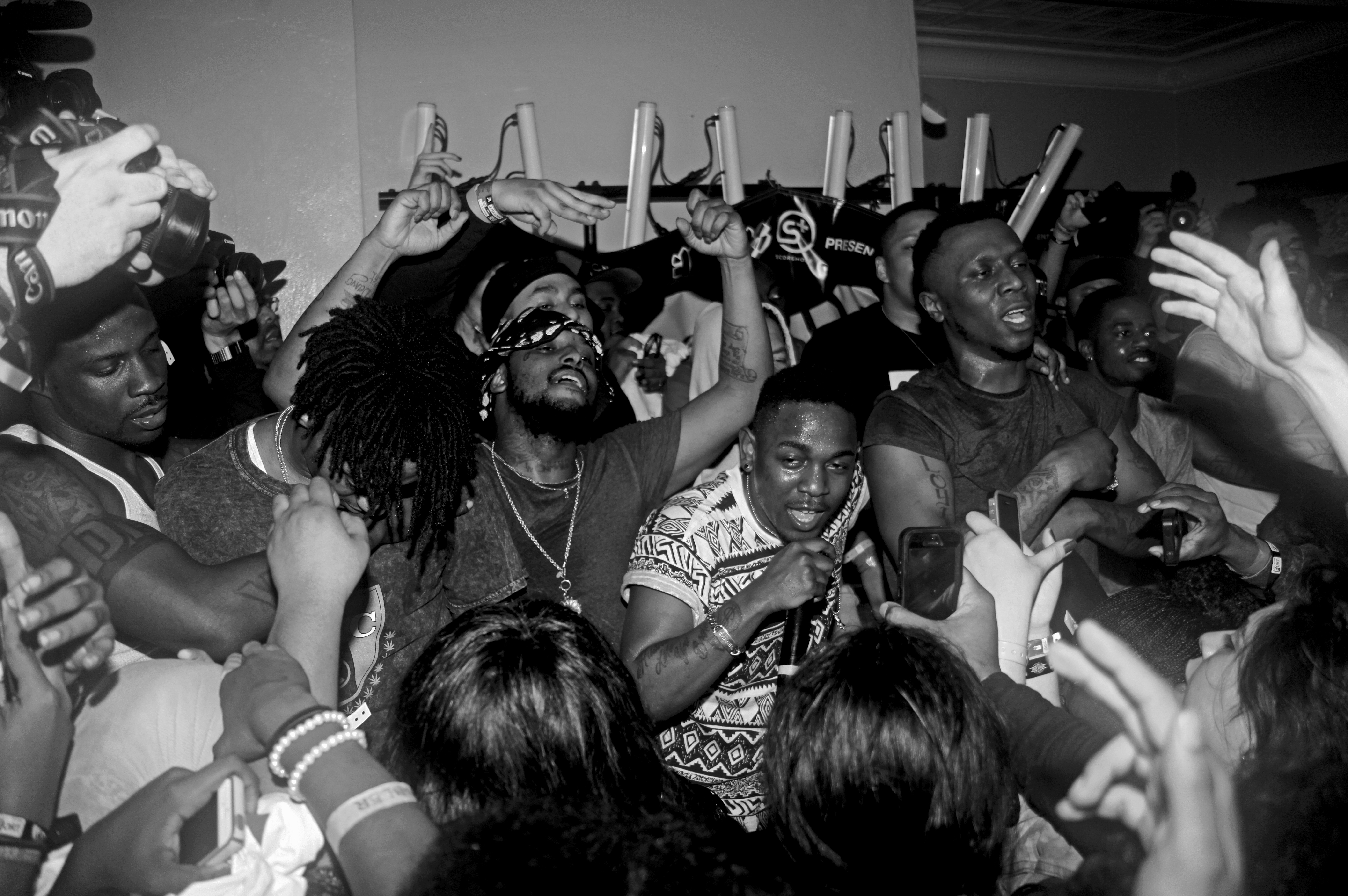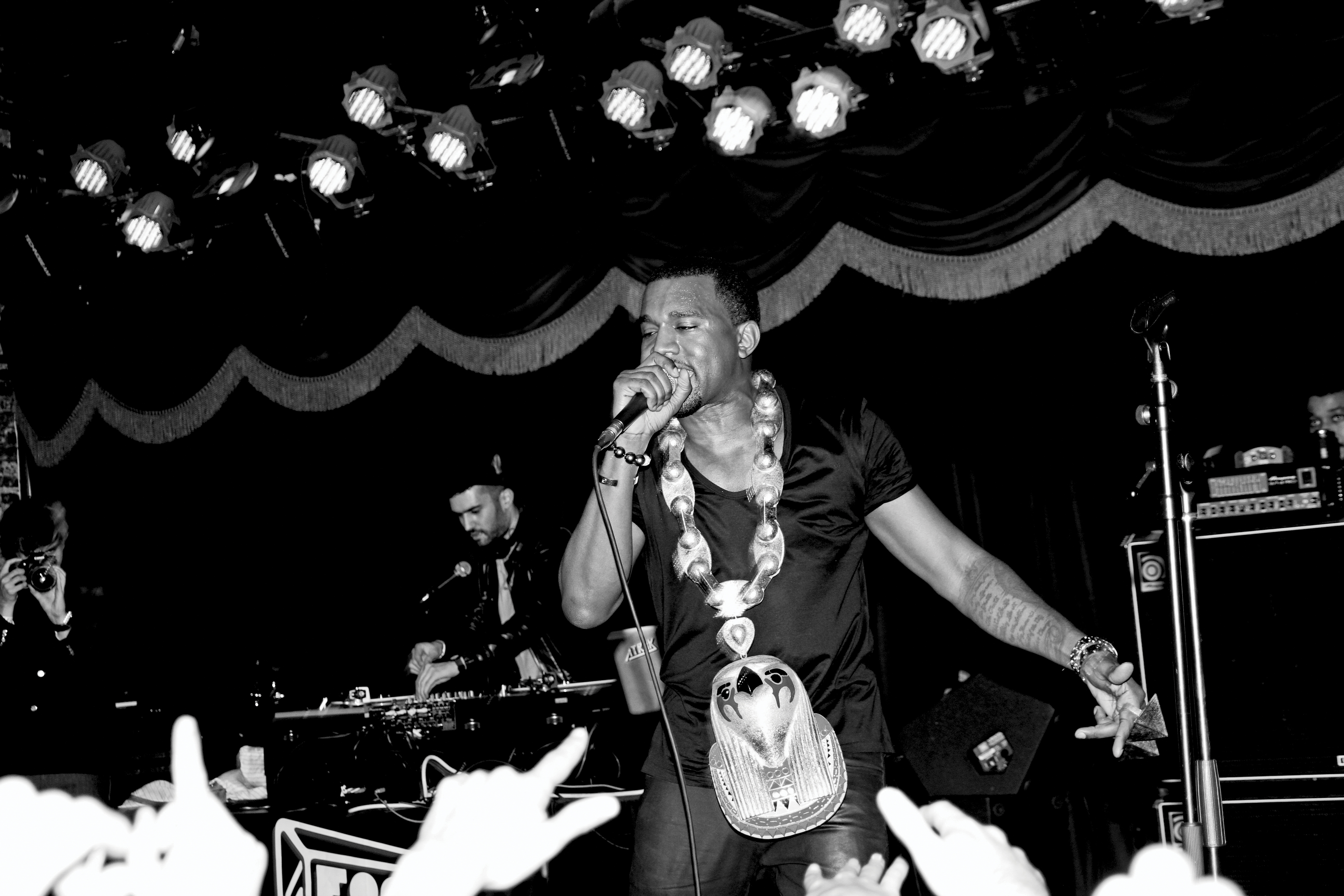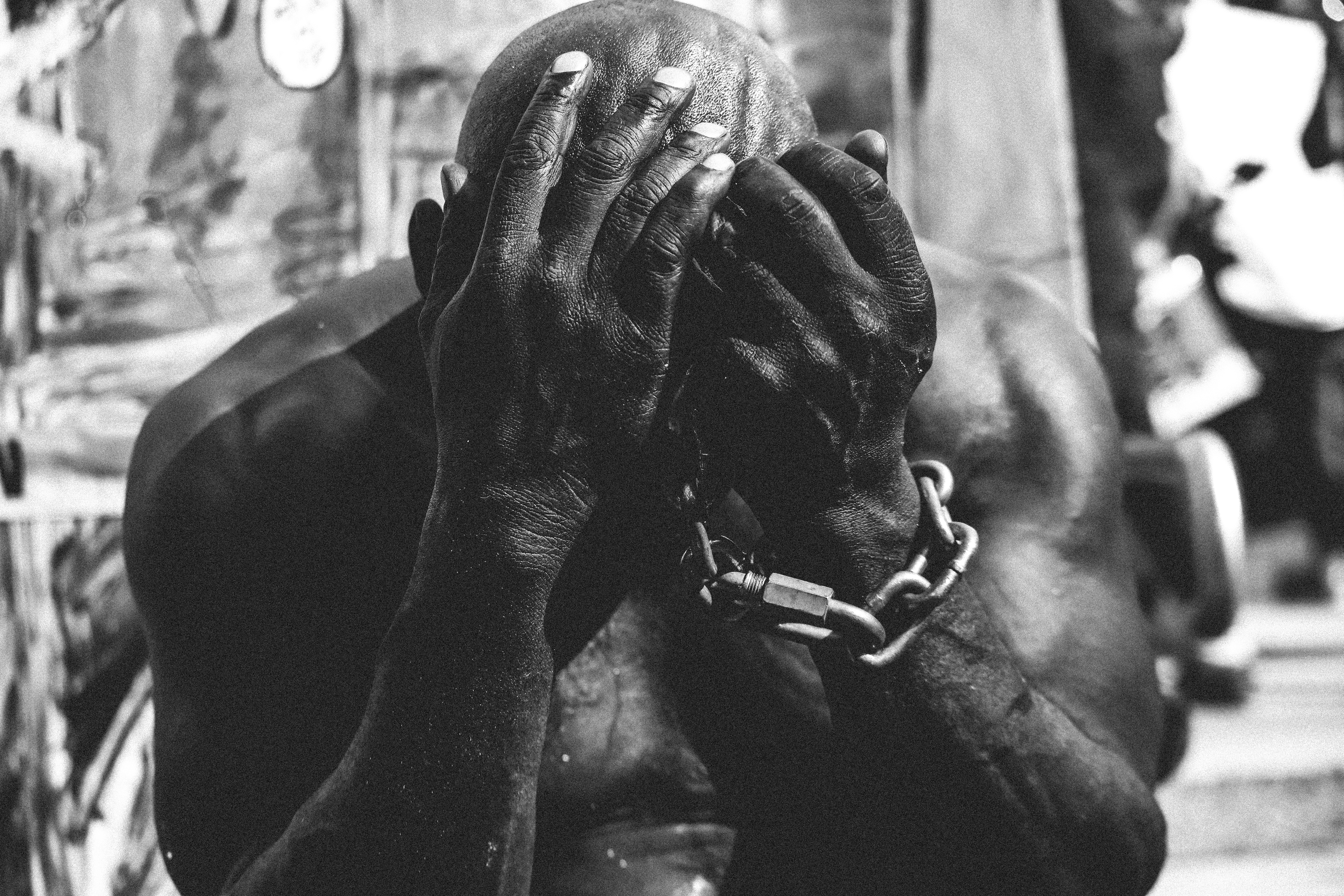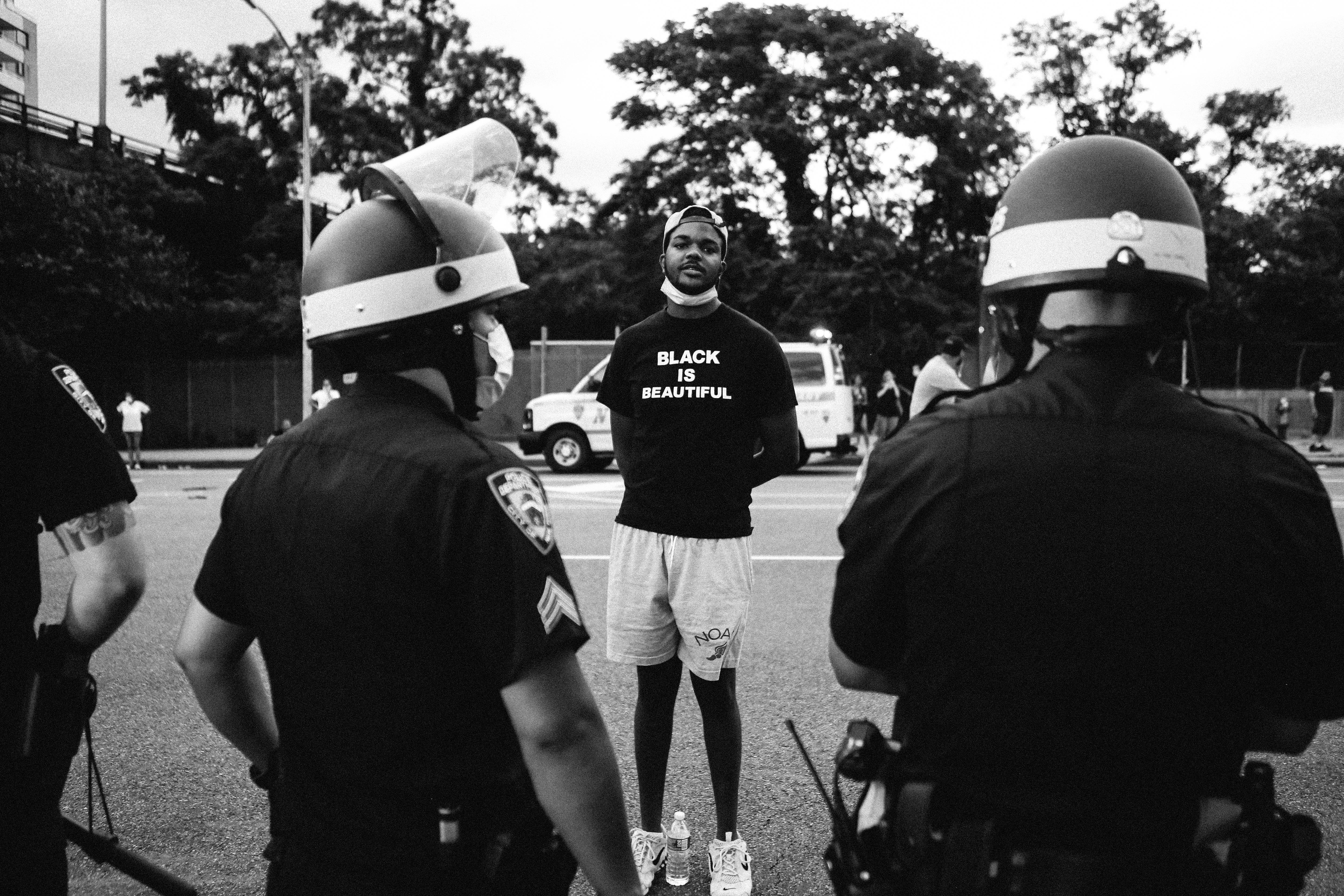
If you love hip-hop music and the people who tug on its endlessly fascinating narrative threads, you probably know the work of Mel D. Cole. In the early 2000s, Cole made his name as a self-taught photographer, quickly landing on the radars of massive names in the industry — especially amongst the “Soulquarians,” a collective that includes Questlove, Common, Erykah Badu, Talib Kweli, and other “conscious” hip-hop and R&B stars of the era. In the process, Cole became renowned for intimate pictures that transmitted the raw energy of live shows and captured the charisma of so many of our favorite musicians.
When the quarantine hit (right after the release of Great: Photographs of Hip Hop 2002-2019), Cole’s main job of photographing rap shows evaporated overnight. At the same time, he saw the tenor of political conversations reaching a fever pitch and agonized over the killing of George Floyd. Wanting to get involved, the 44-year-old hit the streets — traveling across the northeast to photograph protests and Trump rallies. He came away with a renewed love of his craft and a passion for documentary photography.
In short, he created opportunity out of chaos.
With the year winding down and the inauguration coming up, I spoke with Cole about his work, his recent career shift, and the treatment he’s received at Trump events. He threw in a classic Diddy story for good measure.
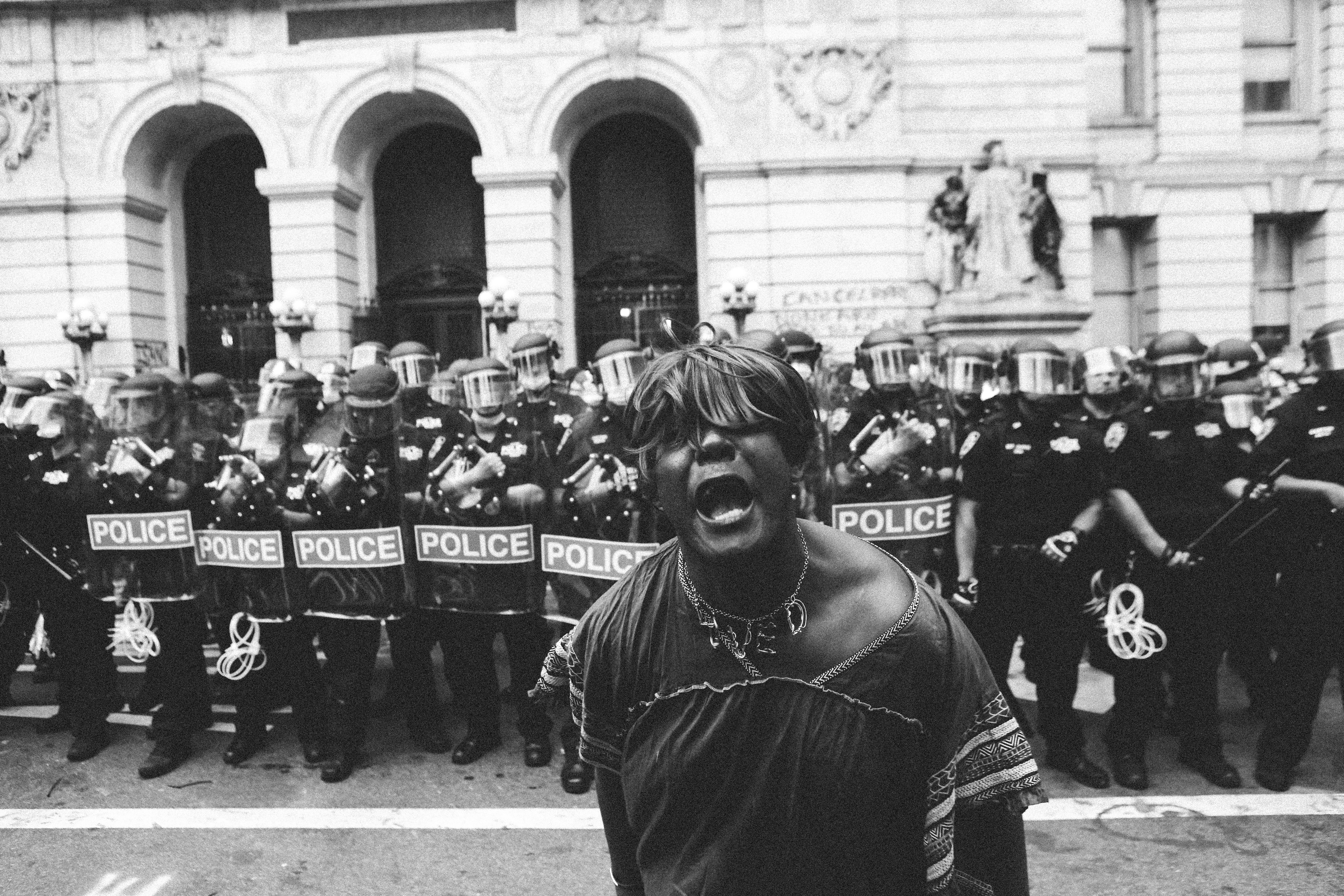
First of all, tell us how you went from photographing hip-hop to photographing politics. Because obviously, so many people know you from your history in photographing the legacy and the culture of rap music. At what point did you start saying, “Okay, I want to photograph politics and see what we have there”?
I’ve always been drawn to conflict, and I always said to myself that if something was to happen in my own backyard, I’m at the point in my career where I’m going to handle it. I’m going to document it. What happened? COVID happened. A couple of times, maybe four or five times, I went out in my car and I took photos from the car.
Then, when the marches and the protests started when George Floyd got killed, I was just inspired to go out and document, because felt like I had to use my platform to make sure that the story is being told correctly, from my point of view. That led to everything else. You start having all these counter-protests, and things like that. I became fascinated with the other side of the coin as well.
I don’t think that’s a particularly common fascination right now. A lot of people in culture get a lot of pushback for showing any interest in the “other side.”
I got to the point where, when I would go to these protests and counter-protests, and there were clashes, I would stay on the other side of the barricade. It’s a little bit more interesting, after spending months embedded, basically, with Black Lives Matter, so it’s like, “Why not be on this other side in this?” Especially when they weren’t fucking with me, they weren’t telling me to leave. They weren’t telling me all the classic, “Fuck you. Get the fuck out of here!” kind of shit. I’m like, “I’m going to take advantage of it.”
They didn’t deny you access at all?
I figured out, as long as you are not out there talking that same shit that the opposition is, no one’s going to fuck with you. You just keep your mouth shut and just document. I’ve been that way the whole time.
Is it easy to do that shit, being a Black man? Fuck no! It’s not easy, because sometimes it’s like, “Fuck.” I forget that I have the camera, and I have this white guy yelling — not necessarily at me, but at someone that looks just like me. It’s like, “Fuck.” I want to scream back at him but I just try to keep it as professional as possible.
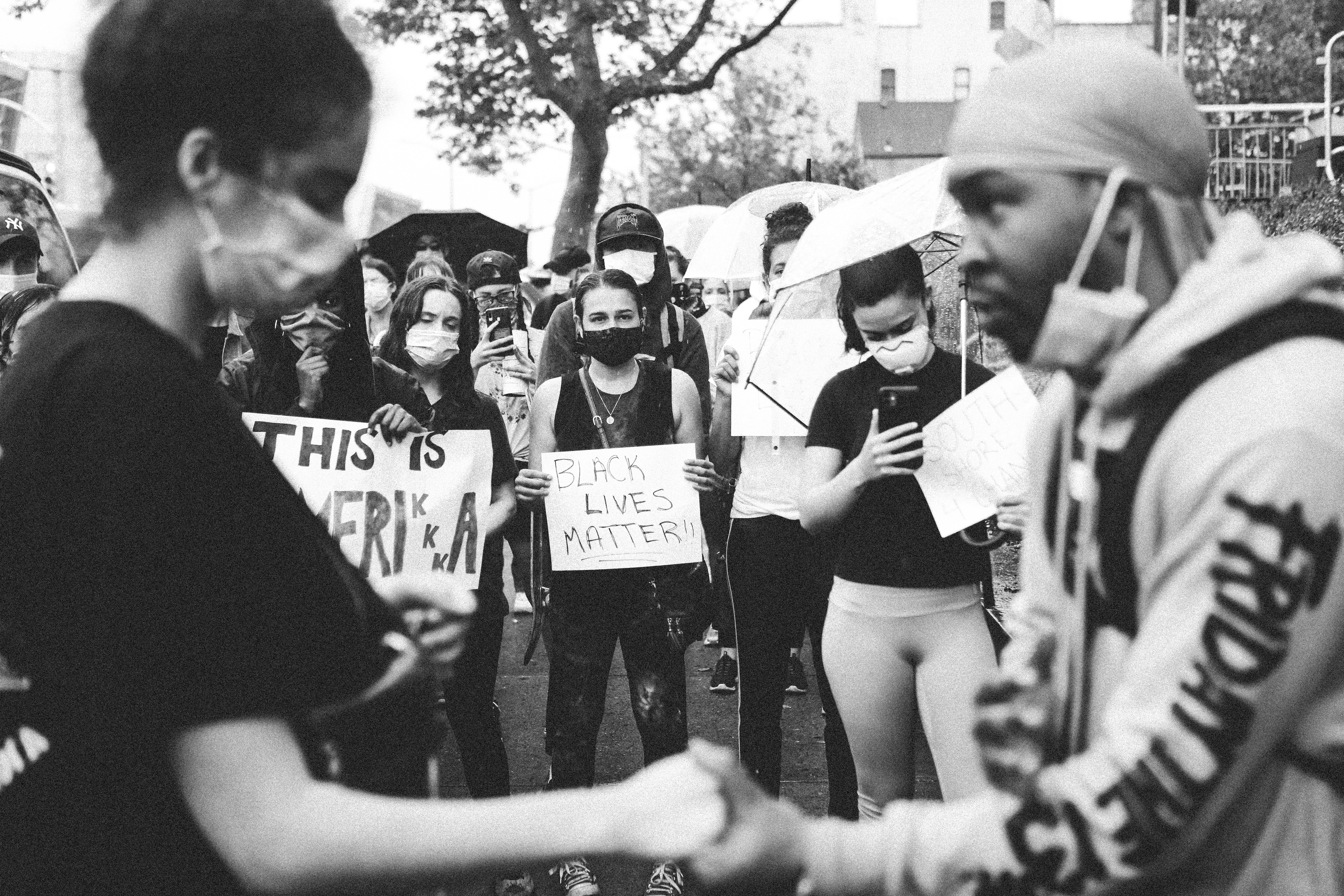
I can’t imagine that you feel safe as a Black man or as a journalist in some of these scenarios.
I’ve been punched in the face in Philly not saying shit, just by documenting it. A guy just clocked me in the fucking face. I’m recording with my iPhone and taking photos. Shit happens. It’s your safety. You not only have to worry about COVID, but you got to worry about the police and also the racists.
So… yeah, that’s how I pretty much got into photographing politics. It was something that I never thought that I would be interested in, let alone focus on. [Fall 2020] I ended up at my second Trump rally in Pennsylvania. Being fucking like… 20 feet away from the man, it is super fucking interesting.
Some people seem torn on whether every Trump supporter is a raging racist or a silent racist or if it’s possible to support his agenda and somehow not be a racist. You’re indicating that you found some level of hospitality around Trump fans, at times. Do you feel like the Trump fan is a person who code switches to at least seem un-racist?
I have really good friends that are Trump supporters that flat out told me that they voted for Trump. White guys. One is a really good friend. When he ran the first time, we had a discussion about the situation. I tried to tell him, like, “Yeah, man, I don’t know if he’s going to switch into presidential mode.” He was hooked on, “Yeah, he’s just doing it to get in office,” which seemed like what a lot of people were saying who were on his train. What I found out now is that I don’t think that everyone that supports him is a racist. Are there plenty of racists that support this man? Abso-fucking-lutely. Absolutely. The Proud Boys, the super right-wing, the white supremacist type of people — absolutely. I think that they are racist as fuck. I don’t really want anything to do with them, but if I had the opportunity to document them and be embedded with them… yeah, I would do it. But it’s like, to be homeboys and chill, have a beer just on some personal shit? No, I’m good on that. But if we could chit chat and talk and I could document the whole experience, all right, cool. I’m down.
Not because you’re an apologist for them, obviously, but because you’re a storyteller.
Absolutely. In no way, shape, or fashion would I turn down the opportunity to photograph Donald Trump. I don’t agree with him, and no, I didn’t vote for him, but as a storyteller, as a… I guess now I can call myself a photojournalist, and today I put “journalist” on my nameplate. There’s no way you could turn down the opportunity to talk to arguably the most famous man in the entire fucking world. You just don’t do it as a storyteller. You take the opportunity.
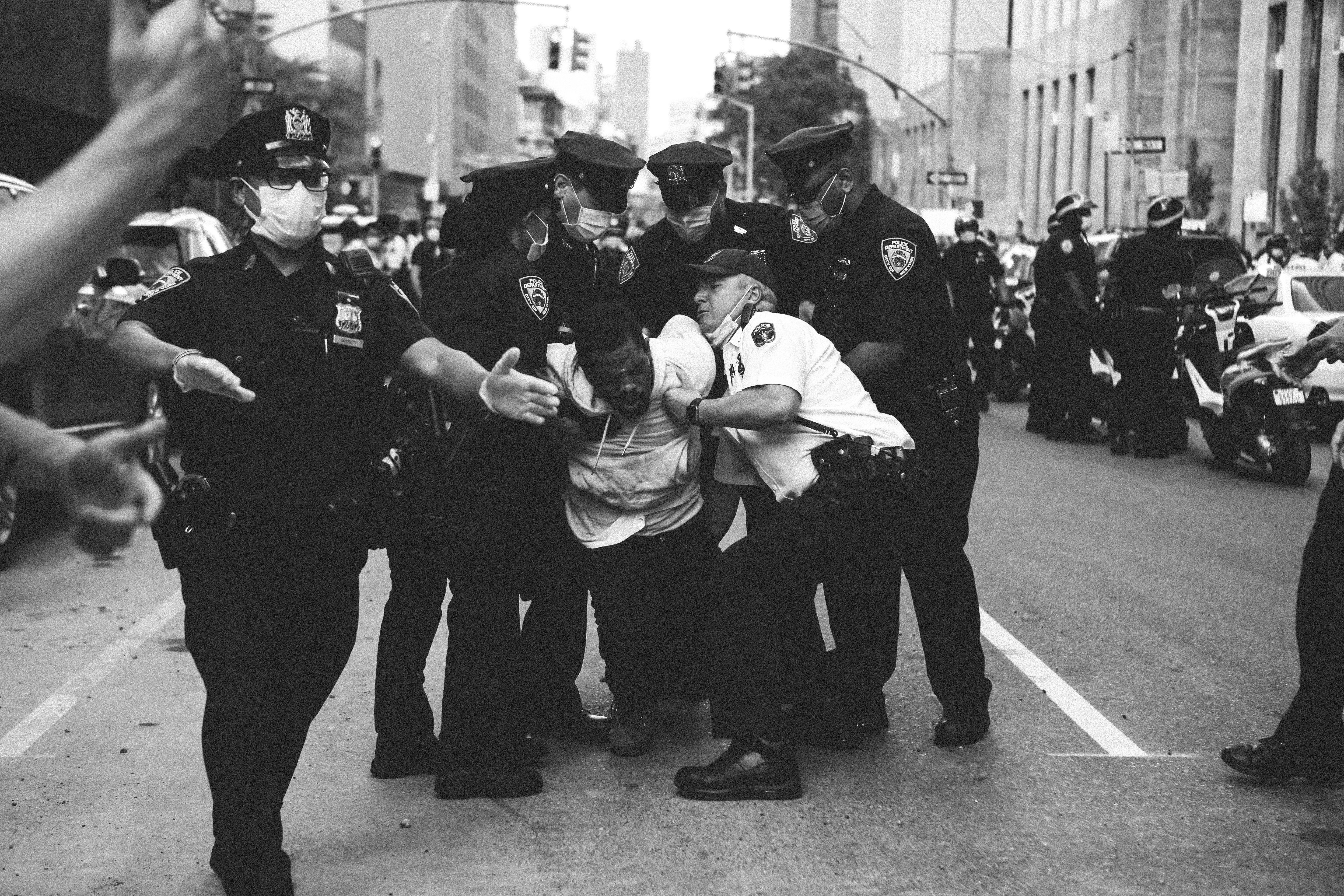
Just to back up a little bit. You came into my life through hip-hop. You’re a person who saw rap music, saw what it was doing, and just knew, from my impression, like, “Oh, fuck. This is where the action is. I’m going in.” Is that how you perceive it? Then, if that’s the case, when did you just know?
It all came from just a love of the music. Basically, my whole life I always knew that I was going to be a “somebody,” so to speak. I just wasn’t going to be a guy that worked a normal 9:00 to 5:00 job, I was going to do something. But for a lot of the years of my life, I didn’t exactly know what that was going to be. I didn’t have a clear-cut direction.
I wasn’t the kid that grew up, “I’m going to be a firefighter,” from nine years old, or, “I’m going to do…” whatever. Any of those jobs. Growing up in Syracuse, I knew that I was going to be bigger than what was happening at the moment. That took some years, and I thought I found it for awhile — I was going to be a teacher. But my father owned a record shop and music was always the shit to me.
You felt that energy in a special way.
When it really clicked is when Common put out Electric Circus back in 2002. I took a couple of disposable cameras to his concert at SOB’s in the city, in New York. I took photos. I was a big fan, standing out. I’m like, “Common, yeah!” For me, the Neo-Soul era is one of my favorite eras of hip-hop. I wanted to grow dreads and live in Philly and hang out with Questlove and The Roots and be in these sessions. I always imagined myself being there.
That night really changed my life, because I took those photos, and then the next thing you know, I put them in a shoebox, Adidas shoebox, and it was maybe a year, month, whatever it was, I started to read more magazines and started to really dive in. Next thing you know, a light bulb went off and I was like, “Fuck, I think my photographs are just as good as this shit that I’m seeing in Rolling Stone, in Complex, and Billboard,” and all these other publications. The shit that I’m seeing on the blogs. It was like, “I think I can do this shit.”
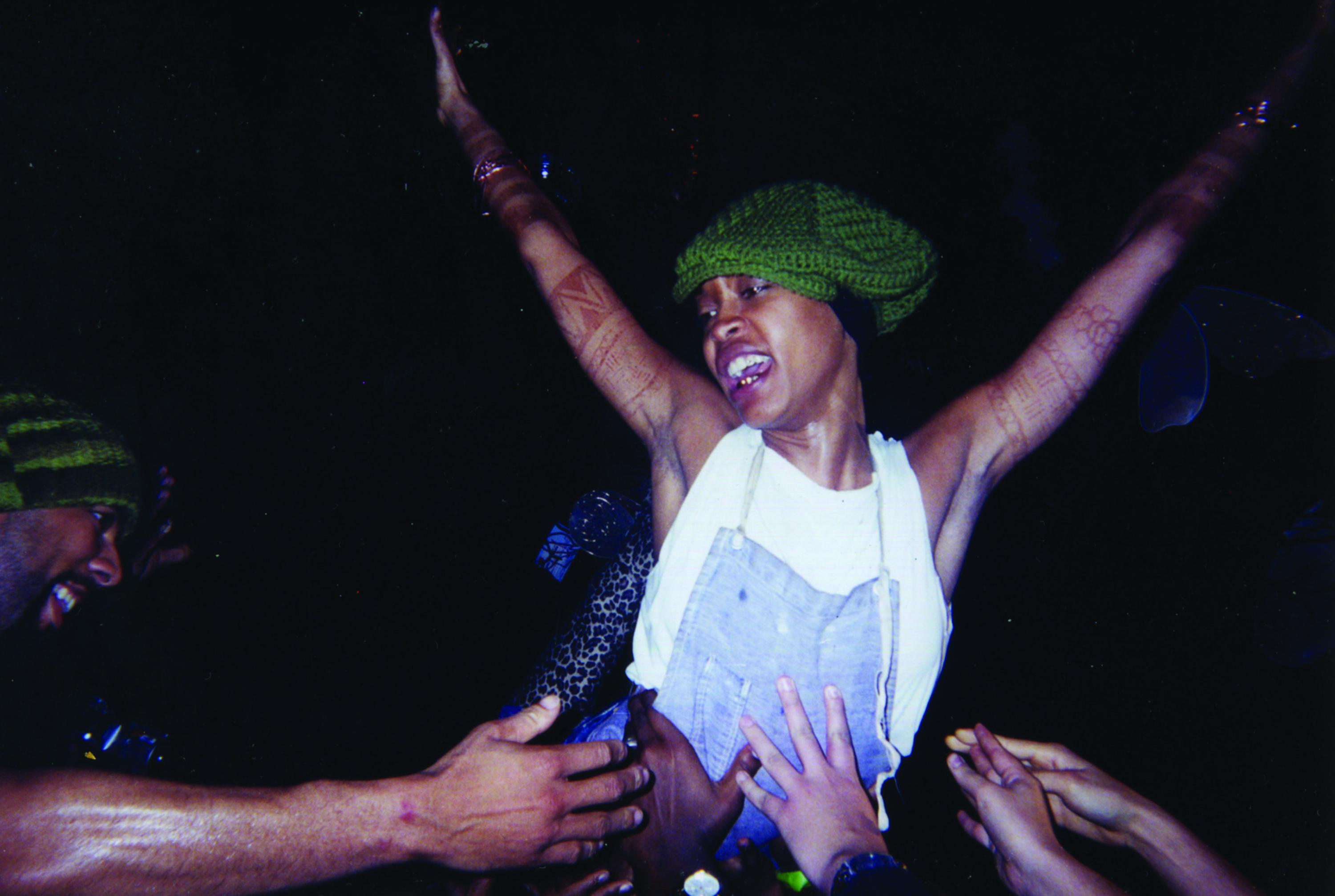
That jolt of confidence that propels a dream.
I went and I bought a digital camera, and shit. Boom. I just started shooting. It was a way for me to … I would go to parties, events, take photos. I would go to concerts. I became the guy with the camera. “Here’s Mel. Mel with the camera.” Kept coming back, and back, and back, and back. I’m self-taught. I taught myself how to use the camera, how to take photos.
To me, it’s like hip-hop is a love of my life, but being able to also use hip-hop in a way to branch off and do different things, like what I’m doing now with my work, is amazing. Because without me being who I am and working so hard to be one of the best, shit to push my career forward, a lot of these doors that are open for me now wouldn’t be open. Like me working in the soccer world, and me shooting politics and Black Lives Matter, and all that stuff. People wouldn’t know that I could shoot all this stuff; they wouldn’t be seeing it if it wasn’t for hip-hop.
There are images that hip-hop fans know of yours. What are the images that you get asked about or that people talk with you about the most?
From hip-hop? Common and Erykah Badu at SOB’s. Questlove in the bathroom putting on the hairspray. More recently, work stuff — Kendrick Lamar, Drake, a lot of Trey Songz photos. Stuff with Talib Kweli, being around him and Mos Def. I feel so privileged to just sometimes be in the same room with these motherfuckers, even though a lot of these guys are my friends now.
Being able to pick up this phone and text Talib, or whatever, having access to … I could have Mos Def say, “What’s up?” That shit still fucking gives me a little tingle. I’m like, “Yeah.”
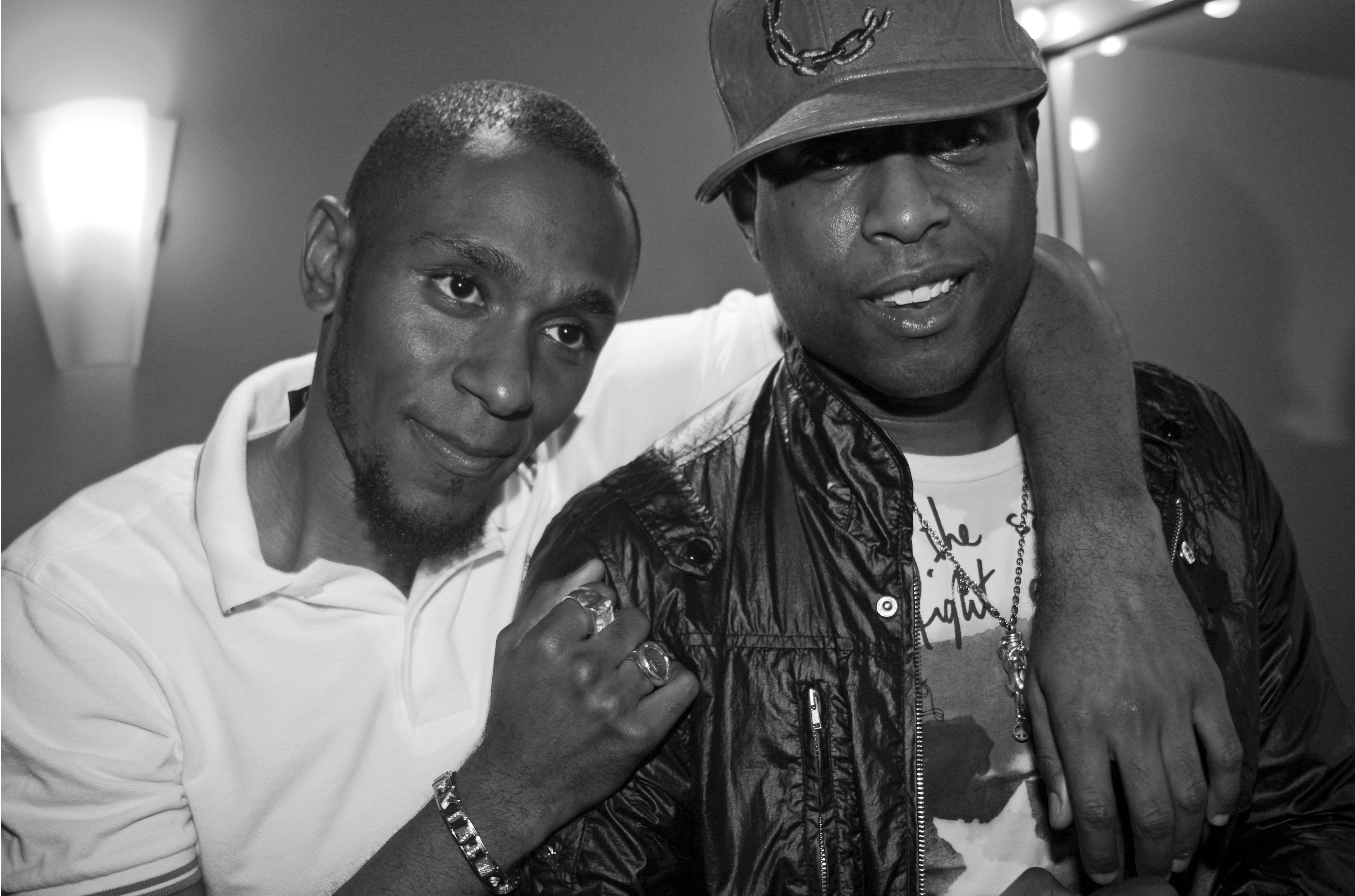
You became a voice of hip-hop culture rising up from fandom, which is a thing that can happen now, probably, but happens in a much different way. Whereas when I think back to then it was… Do you feel like it was kind of the Wild West, where everyone was like, “Look, if you want in on this thing, this is what’s happening”? Like, “This culture is evolving really quickly. If you’re going to hang out, you gotta get involved.” Was that the attitude?
When I started, there wasn’t anyone photographing the type of music, and the type of events, and parties, and nightlife shit that I was really shooting. There were a couple of other photographers. When you compare it to now, you go to a concert and it could be 30 photographers. 30 people with real cameras, and then everybody’s iPhones. I wouldn’t necessarily say it was the Wild West, it was more of just like, “Do your thing,” you know what I’m saying?
“Capture it, and keep coming.” The way I worked, it was like I just kept coming back. I never really asked for favors, or any of that shit. I tried to let the work speak for itself so I can get the attention of these people. Like Questlove. Having his attention and having him be on my side was fucking humongous. It was huge.
One person believing in your talent — especially at that caliber — can make all the difference in the world.
Quick story. There was an instance where I was at Santos in the city in 2009. It was Q-Tip’s birthday party. Q-Tip is there, Jay Z is there, Grand Puba, a couple of other people. They’re all in the DJ booth. Diddy was there. I get up, and in my brain, I’m already like, “Fuck. All right. I see the most epic fucking group shot of all the time. I got to get this shit. This is going to be historic.” I’m going through all of this shit in my brain. I’m slightly nervous. I get waved up to the DJ booth. Diddy turns around, I show him the universal sign, “Can I take your photo?” It was loud as shit in here. Diddy shakes his head no, tells the security guard to get me the fuck out of there, basically. Didn’t use those exact words, but he very well could have.
I get on Twitter, and I start making fun of the situation. Questlove sees this shit. At this time, Quest and I are already friends. He tweets Diddy and tells Diddy that I am going to be the next Gordon Parks. He tells Diddy to fuck with me, basically.
The next day, Questlove gives me a call. I tell him the story. He says, “Oh, man, shit. I thought that’s what happened. Diddy wants to know if I could give him your phone number.” Diddy calls me in two days. Me and Diddy have this fucking amazing conversation. Long story short, he hires me to be his personal photographer for his white party out in Beverly Hills.
Which is a dream on so many levels and amps up your career in a huge way — Diddy is a star-maker.
That was like the next stepping stone in my career, where I was not just a photographer that was shooting downtown nightlife and fucking with that shit, and going to Santos, and all this shit. Then on the music, fucking with The Roots, and Talib, and Mos, and all those guys. Then this party, and I was getting picked up by all of these publications. Black gossip magazines, and online shit. It’s like this shift. I became even more known in a way.
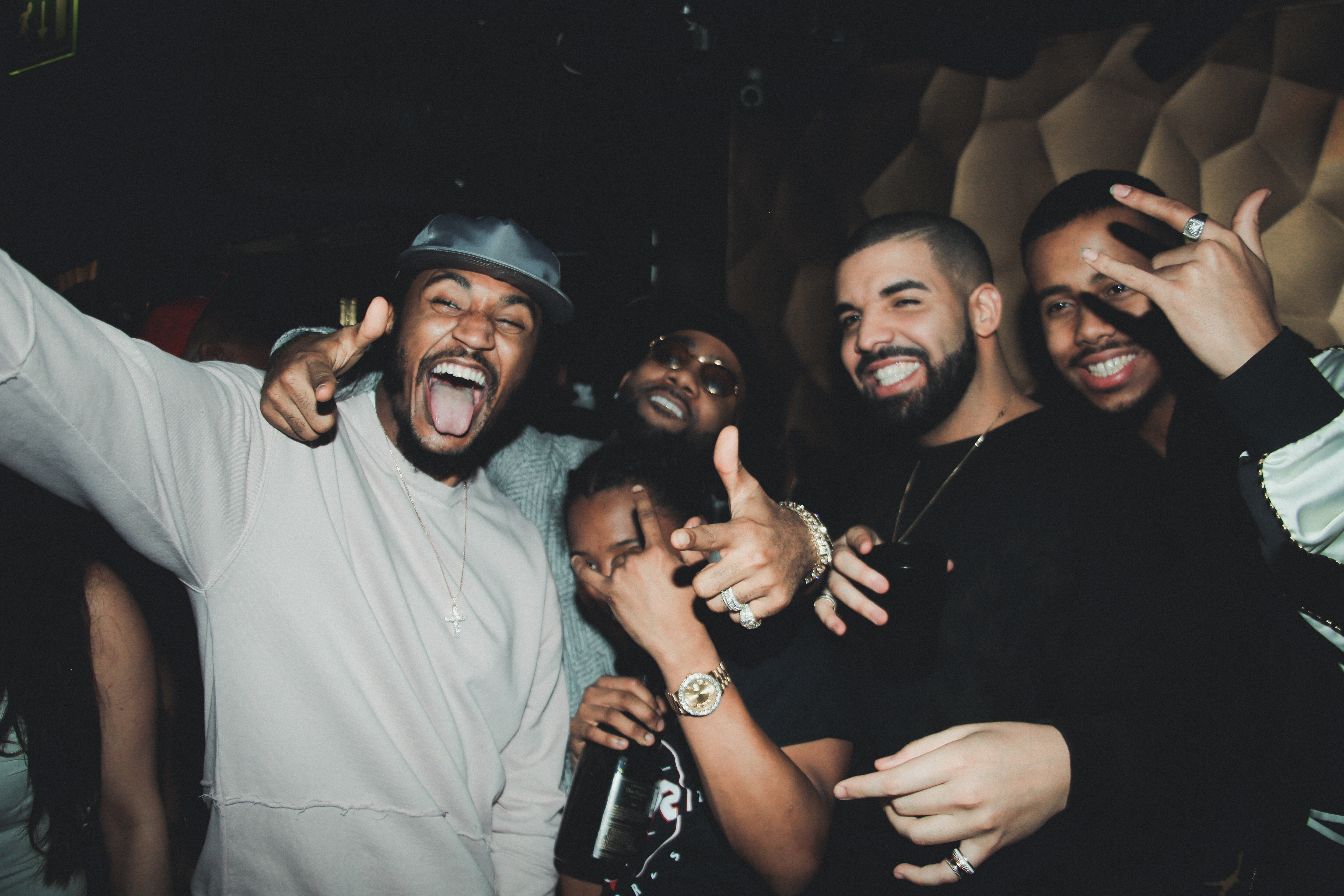
It must’ve felt almost like, “I have to keep pushing” and then a couple of things fell into place, and then it’s like, “Hold on for dear life!” Is that close?
Yeah, man. At that time, in 2009, so we’re still in the Blog era, iPhones really weren’t popping, so I was still carrying around a big ass camera. Then it was like technology just seemed like it just took this fucking leap for photographers, to the point where everybody fucking has the cameras now. Then my shit gets seen as less special, so now I have to hustle extra hard because there’s a whole bunch more competition, and a lot of kids that will come up doing a lot of fucking great work.
A lot of things changed, man. Though I’m still happy to fucking have a career and still be doing what I do.
Let’s talk a little bit about your book. I have it on my shelf — bought it the week it was released — and I feel like it captures the energy of your photography so well, and just tells the story that you want to tell with so much… life in it. What was the motivation behind that, or the thought process? I know, of course, it’s important for a photographer to put a book out, but what was the thought process that governed the whole thing?
I think all important artists — you just have to do a few things. You have to have exhibitions, and you have to have a book. You got to publish this shit. Especially in this day and age, you got to have something tangible for people to have. You put your stamp on your shit.
For me, I feel like, if I want to be taken seriously as an artist, a photographer, I need to have a book. Felt like it was the right time. I’ve been in the game long enough and had a great enough body of work to put out there. That was the reason I did the book, basically. It was like, “It’s time.” Then I was like, “Shit. Nobody has put out a hip-hop book” — featuring just one photographer — in a long time.
I was like, “Shit. I got to get my book out before Mannion does.” Jonathan Mannion, I’m referring to. There are a couple other photographers I tracked. I’m like, “Shit. Let me get this out there.”
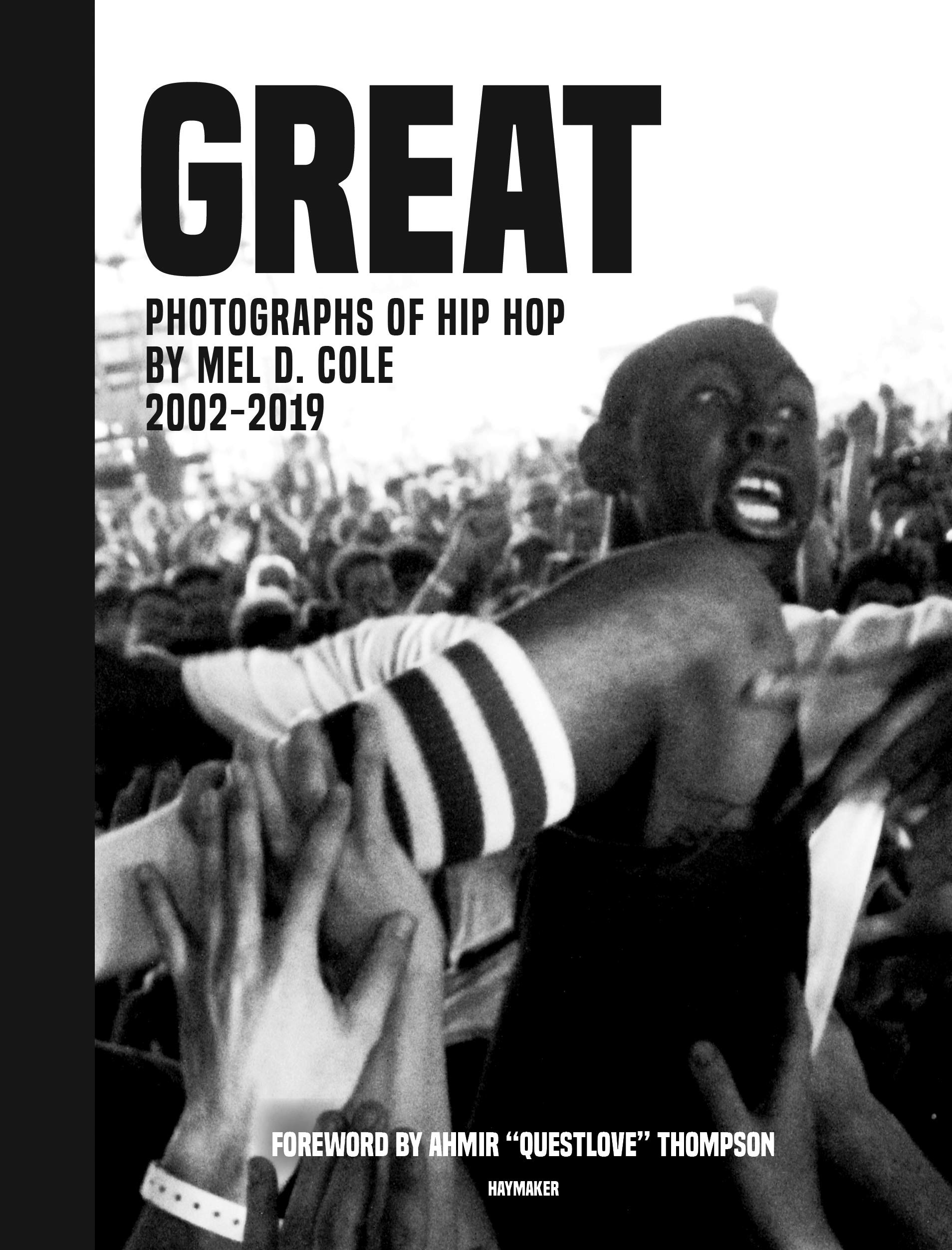
Contact High came out before your book, right?
Yeah. I was kind of pissed off that I wasn’t asked to be in that book, honestly. I was like, “What the fuck?” I’m like, “Why am I not in this shit?” But I believe it was a lot of mostly just film guys, I guess because that’s … The “contact” being a contact sheet. I was like, “I have some film work too.” I felt some kind of way about that, to be honest.
I feel you. Five times a day I feel some kind of way if I’m not asked to be part of something where I think my name belongs. But, as the poet says, “success will be the best revenge.” And you’ve taken your success and become the king of the parlay. That said, you parlayed the hip-hop into journalism, into connections, into some portraiture. Now, as you’ve moved into getting more political, you’ve parlayed one career into another? You’re telling human stories, you’re not relying quite as much on celebrity now. How has that been for you?
What I’ve been doing since, I guess, the end of, shit, Memorial Day of this year, has been the most important work of my entire career, of my entire life. There’s been nothing more important than what I’ve been documenting, this uprising. It’s just hard to put it in words how powerful what I’ve been seeing and experiencing has been. I didn’t expect it to be going on this long, to be quite frank. I absolutely see it not ending anytime soon. I’ve had to take emotional breaks from it to just detox. It becomes too much physically, emotionally, and whatever other way. I have a kid at home, I have a wife. Then we haven’t even talked about COVID, and how that is affecting me — just being out and trying to stay safe.
It seems like you were almost called to tell these stories.
I never thought that I would be documenting or shooting any of this. If COVID didn’t happen, if George Floyd didn’t get killed, or … Who knows? I would still be shooting concerts and still trying to be the best at that. Now my goals have shifted to the point where my work has been picked up by the New York Magazine. I was in Rolling Stone, but not for music, which is mind-boggling to me. I have work in the Atlantic. It’s just such a tremendous thing. I have all of these different people follow me, editors from National Geographic and Time Magazine. All of these publications that I thought were out of reach for me.
I always dreamed of, “Man. National Geographic. It would be awesome to shoot some of that stuff.” But I just didn’t necessarily know how I was going to do it. I have dreams of going to isolated areas in Africa and in documenting some of those people, like I used to see in the magazines back in the ’90s and in high school, and all that kind of shit. Now those things are actually tangible. The type of people that hire and put you on assignment to do those things are fucking with me now. It’s totally mind-boggling.
I was talking to an editor from National Geographic. I’m like, “What the fuck? Who am I becoming?” But this is what I’m supposed to be doing. I still want to do music, but this is it, man. As I’m getting older too, I’m 44. I always thought that I wasn’t going to shoot music forever. I don’t want to be in a club. I love you, Trey [Songz], you my brother, but I can’t be in the clubs with you all goddamn night all the time. I feel like I got a couple more tours and then I’ll just focus in on the photojournalism type of thing.
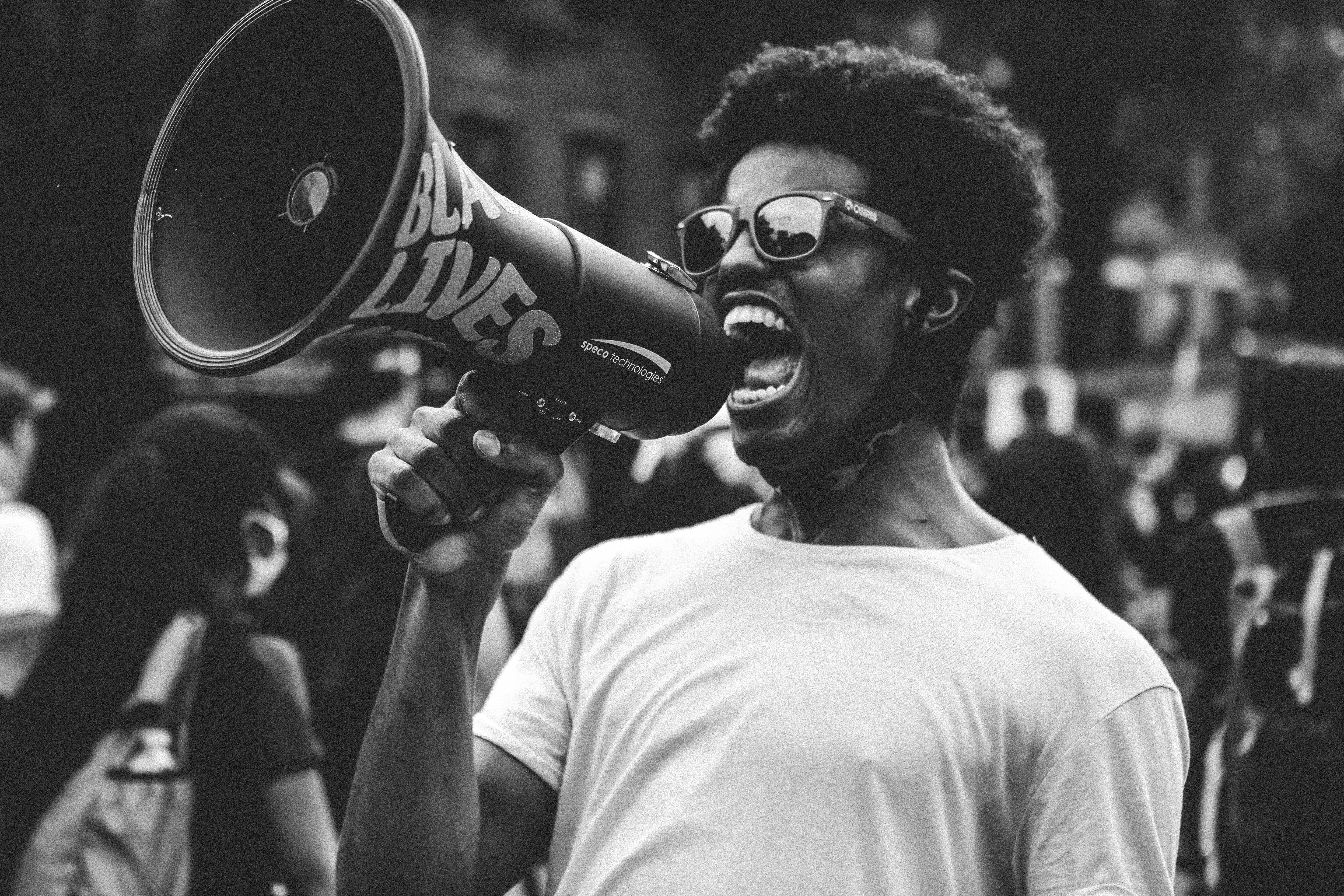
What do you see the stories you want to tell over the next couple of years?
Good question. I don’t even know, man. I’m just letting it take me where it takes me. I really love shooting things from an outsider point of view. That’s really intriguing to me, just being able to do things that the normal Black guy, Black photographer, Black journalist wouldn’t necessarily be able to do. Or not necessarily unable to do, but maybe won’t do — like going to a Trump rally.
I think for me, that shit, being able to show my followers that, “Here I am. I’m doing this, and I’m talking to these people.” Get outside your little bubble sometimes and see what the other people think instead of just listening or watching it from afar. You can actually go have a conversation with somebody. I think that’s where I want my work to lead me.
